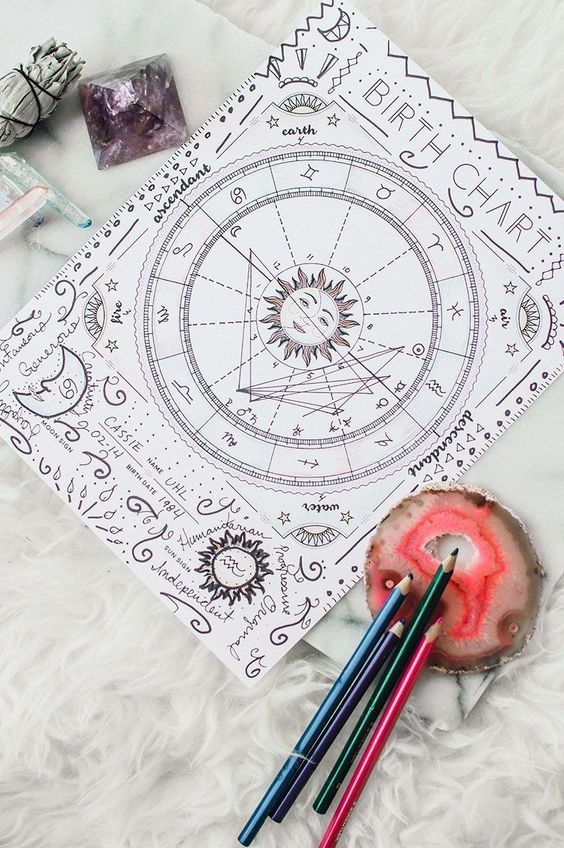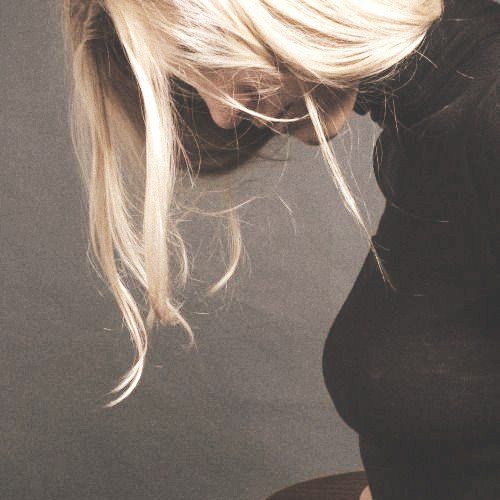 In every astrology chart, there will always be empty houses. This is a natural occurrence and should not be a cause for concern. Some houses are not occupied by any planets at the time of birth, but this does not mean they lack significance or that their related areas of life will be inactive or unimportant. Empty houses can still be very active through the influence of transits—planets moving through these houses over time. Transits are like temporary visitors bringing energy and activity to the houses they pass through. For instance, if your 7th house of partnerships is empty at birth, it doesn’t mean you won’t have significant relationships. Instead, it suggests that the dynamics of your partnerships may be influenced more by transiting planets, which can bring impactful changes and events. Consequently, you will observe activity in each of the houses throughout the cycle of life, regardless of whether they are initially empty. Additionally, factors such as natal Venus and its aspects, along with numerous other aspects of your chart pertaining to relationships, should be considered.
In every astrology chart, there will always be empty houses. This is a natural occurrence and should not be a cause for concern. Some houses are not occupied by any planets at the time of birth, but this does not mean they lack significance or that their related areas of life will be inactive or unimportant. Empty houses can still be very active through the influence of transits—planets moving through these houses over time. Transits are like temporary visitors bringing energy and activity to the houses they pass through. For instance, if your 7th house of partnerships is empty at birth, it doesn’t mean you won’t have significant relationships. Instead, it suggests that the dynamics of your partnerships may be influenced more by transiting planets, which can bring impactful changes and events. Consequently, you will observe activity in each of the houses throughout the cycle of life, regardless of whether they are initially empty. Additionally, factors such as natal Venus and its aspects, along with numerous other aspects of your chart pertaining to relationships, should be considered.
Astrologers look to the sign that rules an empty house to gain deeper insight into its matters. Each house in the astrological chart is ruled by a zodiac sign, and the ruling sign’s characteristics and the placement of its ruling planet provide valuable information about the house’s influence. For example, if there is nothing in your 3rd house, which governs communication, siblings, short trips, and mental activities, an astrologer will consider the sign on the cusp of the 3rd house and its ruling planet. The natural ruler of the 3rd house is Mercury, so the placement of Mercury in your chart can offer clues about your communication style, thought processes, and areas of interest.
The ruling sign and planet of an empty house help fill in the gaps, offering a fuller picture of how that house functions in your life. If your 3rd house cusp is in Gemini, and Mercury is in the 10th house, your communication and mental activities might be closely tied to your career and public life. You may excel in professions requiring strong communication skills or intellectual engagement.
In addition to the ruling planet, transits and progressions (the movement of planets over time) play a significant role in activating empty houses. For example, if transiting Jupiter enters your 3rd house, you might experience a period of expanded communication, learning opportunities, and enhanced relationships with siblings or neighbors. Similarly, if your progressed Moon moves into the 3rd house, you may find yourself focusing more on your immediate environment, nurturing relationships with those around you, or engaging in new forms of self-expression.
In astrology, the houses are fundamental to understanding the full narrative of a person’s chart, yet they often don’t get as much attention as the planets or signs. Each house in the astrological chart represents a different area of life, such as relationships, career, or health, and they form the backdrop to the astrological drama—much like a stage for actors. Planets, when they transit or reside in these houses, are like actors wearing the costumes of their signs, engaging in actions that reflect the themes of the specific house they are in. While the planets travel around the chart and provide all of the activity, the houses themselves do not move. They remain fixed, much like the various environments that make up the physical world.
The houses are static, providing a consistent framework that reflects the many different levels of reality within the psyche. This fixed nature allows for a stable backdrop against which the dynamic movements of the planets can be observed and interpreted. Despite their lack of physical movement, the houses are far from inactive. They are like different rooms in a house, each with its unique function and energy. The planets, as they move through these houses, bring life, activity, and focus to each area.
If we don’t have planets in particular houses, those spheres may appear alien, yet they are as much a part of your psyche as houses with planets in them. An empty house does not mean that area of life is void or insignificant. Instead, it suggests that the themes represented by that house may not be the primary focus at the moment of birth. However, these areas will still experience influence and activation through transits and progressions, just like houses with natal planets. For instance, an empty 10th house of career and public life does not mean you will not have a career or public presence. It may indicate that your professional life will be influenced more by the ruling sign and its planet, as well as by the transits of planets moving through the 10th house over time. This can result in periods of significant professional development and public recognition when key planets transit this house.
In this way, the houses represent the various environments of the psyche, each providing a different area for the planetary energies to express themselves. They offer a comprehensive map of the different facets of life, ensuring that no area is left out. Even if certain houses are empty, they are still vital parts of your astrological chart, contributing to the overall diversity of your personal story.
Astrologers, therefore, must pay attention to the houses, understanding their rulership, and interpreting the transits and progressions that activate them. Every part of the chart is considered, reflecting the full spectrum of human experience and the interplay between the fixed environments of the houses and the dynamic activities of the planets.
Donna Cunningham says,
When you scan a chart, some houses appear empty, while others are relatively full. Here, I pay attention only to the basic ten planets, not to nodes, asteroids, or parts, because those basic planets represent major focus and expenditures of energy. Given twelve houses and only ten planets, at least two houses will be vacant. However, when several planets clump together in a single house – as often happens with the Sun, Mercury, and Venus – even more houses will be unoccupied. This is as it should be. We can only scatter our energies in so many directions before we become as fragmented as an asteroid belt. The person whose planets are deployed in many different houses tends to have many interests and to try to juggle many responsibilities and connections. Whether they are successful at it, or whether they becomes ineffectual dilettantes, depends on other factors in the chart. Full houses depict highly significant areas of life, not unlike putting lots of eggs in a single basket. The area of life in which we expend our energy is where we tend to get results. A full house is therefore, an area in which meaningful people, situations, and events are clustered. If you have several good planets in the 11th house, but nothing in the 4th, friends will be major supports and may outweigh family importance in adulthood…Many novices become upset if their 7th house is vacant, thinking it means they will never marry. Consider, however, what else int he chart might compensate. How strong is Venus? Are there major placements in Libra, especially the Sun, Moon, or Ascendant? Where is the ruler of the 7th house?
The existence of 22 distinct house systems in astrology provides a wide spectrum of approaches for astrologers to interpret charts, inevitably leading to heated debates over which system is the most accurate or effective. Each house system has its own methodology for dividing the heavens above and correlating it to the astrological houses that influence various aspects of an individual’s life.
The Equal House system is perhaps the simplest to understand and use, especially for those new to astrology or looking to construct their own charts. In this system, each house is allocated exactly 30 degrees of the zodiac, beginning directly from the degree of the Ascendant. Its simplicity makes it an attractive starting point for beginners.
On the other hand, the Placidus system, which is the most popular among professional astrologers, employs a more complex method that takes into account the time and location of birth to calculate house divisions. The time-based approach allows the Placidus system to reflect the nuances of different geographical latitudes and temporal factors more finely than the Equal House system. Liz Greene prefers the Placidus system for these reasons. It tends to produce a chart where the angles (the Ascendant, Descendant, Midheaven, and IC) are highly sensitive to timing and location, leading to what many consider more individually tailored interpretations.
However, one interesting aspect of using different house systems is that a planet’s house position can change depending on the system used. It can lead to different interpretations for the same birth chart. For example, a planet that falls in the 5th house in a Placidus chart might appear in the 6th house in an equal house chart. This can lead to variations in interpretation and emphasis on different areas of life. Despite this, planets located within any house significantly influence the life themes associated with that house due to their dynamic energies. Therefore, houses containing planets are often seen as more active or significant areas of life in the astrological analysis.
The presence of planets in a house indicates a concentration of energy and focus in that area of life. For example, if you have several planets in the 10th house, your career and public life are likely to be prominent and dynamic aspects of your experience. Conversely, an empty 10th house suggests that career matters may be influenced more by the ruling sign and its planet, as well as by the transits of planets moving through that house over time.
Nonetheless, even houses that appear empty are not devoid of influence. These areas can indicate life themes that don’t necessarily attract dramatic events or require intense focus but are still essential components of a person’s life experience. They can highlight areas where growth might occur more internally or where less external activity is noticed.
It would be erroneous to suggest to someone, for example, having no second house planets, that she has no talents, is unable to survive independently, to earn money or to acquire personal assets. Likewise, advising someone having no sixth house planets that there is no need for employment, or no need to establish positive daily routines, would be equally irresponsible. These houses operate regardless of whether or not planets are located within them. For example, the planet ruling the second house shows where (house) and how (sign) personal assets can be acquired. The planet ruling the sixth house shows where (house) and how (sign) positive daily routines are developed. In Search of a Fulfilling Career














